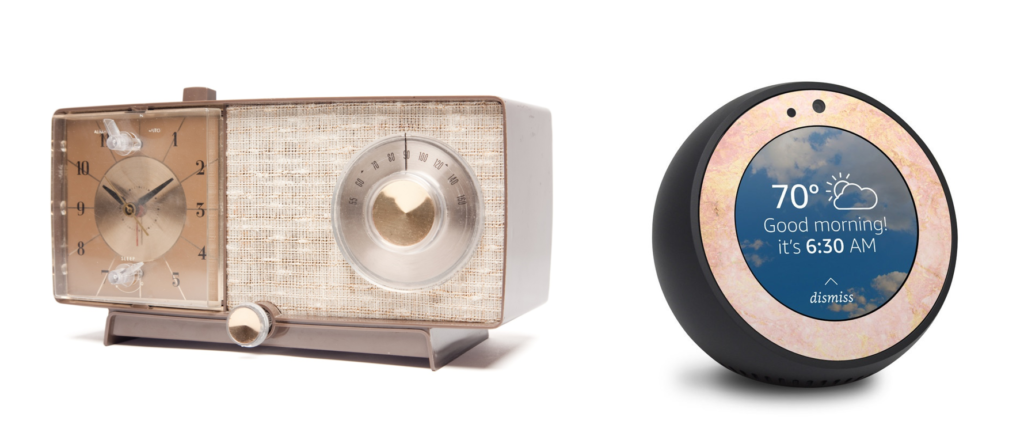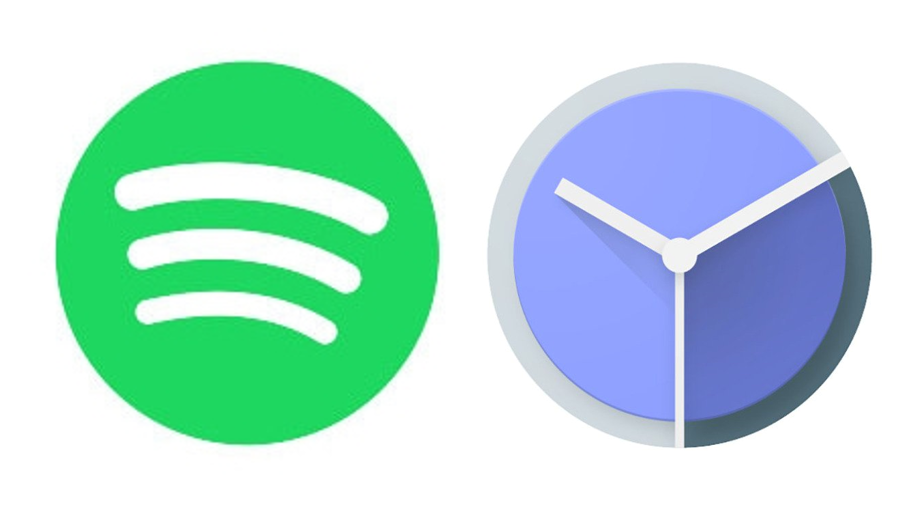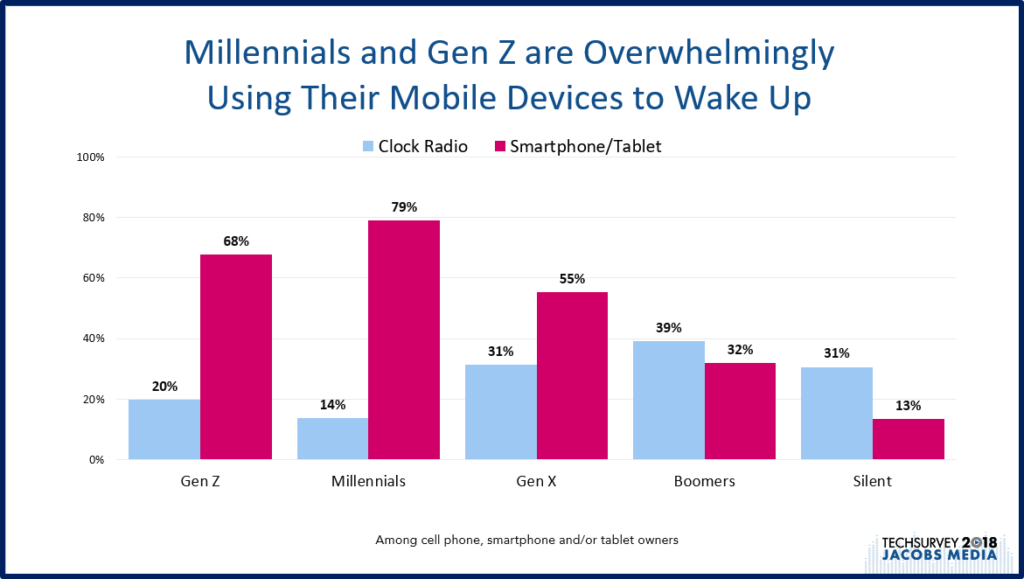 It’s one of the most memorable scenes in the history of film, perhaps because it repeats itself more than 10 times.
It’s one of the most memorable scenes in the history of film, perhaps because it repeats itself more than 10 times.
Of course, I’m talking about the Harold Ramis/Bill Murray classic, “Groundhog Day.” And the supernatural aspect of the movie is represented by a clock radio blaring Sonny & Cher’s “I Got You, Babe” every morning at exactly 6am.
And as annoying as that scene becomes to Phil Connor (the confused TV weatherman played brilliantly by Murray) – and the audience – it now stands out as a nostalgic reminder of the way things used to be – almost as archaic a moment as when we see dial phones, videocassettes, and airports without security in old movies.
Most people rolled out of bed with their clock radios blaring a local morning show or station. Back in the ’70s and ’80s, most consumers didn’t turn on the TV when they woke up, and of course, there was no Internet, social media, or smartphones. The day started – and often ended – with the clock radio.
You woke up to your favorite station – a key reason why morning drive was always – book after book, year after year – the most dominant daypart of them all. That’s where radio placed its biggest stars, its funniest shows, and its best news, traffic, weather, and sports coverage.
But truly smart broadcasters also knew how important night-time radio was to their ratings health. Iconic DJs like John Landecker and Dan Ingram ruled the evening airwaves, and later soothing hosts like WNIC’s Alan Almond on “Pillow Talk” performed the same recycling task. That’s because if you went to bed listening to a radio station, chances are you woke up tuned into that same station – thanks to that ubiquitous clock radio sitting on your nightstand. Ratings monsters like Larry Lujack, Steve Dahl, and Ron Chapman owed a debt to their hard-working nighttime counterparts, setting the table for their morning drive shows.
Those were the days.
Today, nights (and overnights) are largely a throwaway. Many stations don’t even look at the ratings after dark. It’s all about so-called “prime” – 6am-7pm.
And more and more people are waking up to a smartphone playing ring tones or a disembodied voice named “Alexa.” Amazon’s Echo Spot (pictured above) bears a stark resemblance to the clock radio of old. That’s no coincidence.
Not to be out-Echoed, Google is now jumping into the wake-up sweepstakes head-first. Last week, they announced a partnership with Spotify.  Their native (that means it’s on every Android phone) Google Clock application has been updated to connect to a Spotify account, allowing users users to wake up to any playlist – the blues, salsa, country, party songs, or Monty Python comedy tracks on their phones.
Their native (that means it’s on every Android phone) Google Clock application has been updated to connect to a Spotify account, allowing users users to wake up to any playlist – the blues, salsa, country, party songs, or Monty Python comedy tracks on their phones.
As the UK-based Metro’s Jessica Lindsay observes, “Instead of buying a radio alarm like some form of neo-luddite, there’s now a way to this and stay in the 21st century.”
Ouch.
This is nothing new. The trajectories of mobile devices and traditional clock radios as wake-up tools have been moving in opposite directions for several years now.
Our Techsurveys now show more people waking up to electronic tones on their smartphones rather than with a broadcast radio morning show. That’s even more the case when we study younger generations like Millennials and Gen Zs.

Now, let’s not forget who these Techsurvey respondents are – they’re largely members of radio station databases. So imagine what this data would look like for the rest of the population.
With this new Spotify feature, many smartphone waker-uppers will be rolling out of their beds to their favorite playlists, and the challenge to broadcast radio’s morning shows gets a little more real.
To remain competitive with those under 50 years-old (note the Gen Xers in the chart), station operators need to be thinking and building the following:
- Competitive morning shows more entertaining, relevant, current, and funny than the standard music playlist
- Personalities at night who can attract an audience, and perhaps create more listening occasions for radio – not to mention, the gateway to morning drive
- Mobile apps with alarm clock features that are simple and well-marketed, encouraging fans to wake up to their favorite radio stations
- Alexa “skills” that provide “flash briefings” each morning and other solid content
The “givens” of broadcast radio strategy are showing fissures and cracks, as technology continues to rock our world. Research that continues to measure which station plays “too many bad songs along with the good ones” or whether songs are burned out is no longer a comprehensive measure of perceptual performance. The scorecard is changing.
Broadcast radio needs to start asking new, better, and more germane questions about its programming, its personalities, and its overall user experience. It would be smart for the industry to start playing a long game, rather than focusing on the upcoming quarter.
Before the situation becomes even more alarming.
- What To Do If Your Radio Station Goes Through A Midlife Crisis - April 25, 2025
- A 2020 Lesson?It Could All Be Gone In A Flash - April 24, 2025
- How AI Can Give Radio Personalities More…PERSONALITY - April 23, 2025




A funny morning show may be difficult to pull off. Not everybody is a comedian, although many, sadly, try to be. True one to one communication is an essential element of a good morning show. Does anybody even teach that in 2018?
I agree, that “one to one” connection is radio’s strength–perhaps it’s sole strength anymore. As Robert says in the below comment, you can tune around and hear much of the same tired, formulaic schtick on almost every morning show, but it’s that person who can really “connect” with you that you’ll want to wake up and share that first cup of coffee and the ride into work with. Let’s face it, there are so many endless choices now that if radio loses that one to one connection, it’s lost everything.
I’m old, I wake up early, 5am most days. I make coffee and read things on line. If I get in my car and drive somewhere in the morning, what I hear is what I read, 2 hours earlier The “morning”personalities”, usually a male host, a laughing girl and a couple of boobs, usually a “news” person and a producer who function as a laugh track or Greek chorus depending on the story.. Here’s what happens, the host reads the story off a computer word for word, Then I hear, hah, hah, hah, you’re kidding me, ha, ha, hah!”, Then the host says, “Can you imagine a guy bringing, an alligator into to a convenience store?” Hah, hah, hah. BTW, online I watched an interview with the drunk alligator guy, funny stuff. Never heard the audio from the video on the radio…
If I change stations, I hear the same damn story, word for word, the same forced laughter.
A retired GM friend of mine said, “My God, I wouldn’t have hired some of these morning guys to do the all night show…”
I wonder if anybody in management ever listens to their own stations anymore? Are there any PD’s around who sit down with the talent and do a detailed critique with them? Does the morning show talent ever listen to their stuff?
No wonder my daughter’s generation abandoned radio and my grand kids don’t even know what a radio is. With few exceptions, there’s nothing there.
C’mon, Robert. The conversation here is supposed to be productive. Go program a station again and show us how great you are, and then you can hate as much as you want.
Robert, to each their own. My belief – and humor and entertainment ARE subjective – is that there are many morning shows (and personality shows in other dayparts) doing a great job, working with heavy commercial loads, and with competitive factors that didn’t exist 10, 20 years ago. I know it’s fashionable to bash today’s radio, but under less-than-idea circumstances and no shortage of disruption, many shows are doing remarkably well. I’m off to Morning Show Boot Camp this week and really looking forward to hanging out with a several hundred DJs, personalities, and shows.
LA radio Fred. 2018. The biggest market dollar wise in the world. These “entertainers” are making $$$. And they can’t take the time to craft a bit to their shows and their market?
Not sure how this plays into the convo, but check this out: At this Sunday’s Orioles-Red Sox game the O’s are giving away “retro talking alarm clocks” … to all KIDS 14 and under. Not to the adults … to the kids. I’m hardly the only one who’s a bit puzzled by that.
Sounds like the O’s have a promotion director who used to work in radio. Thanks, Harv.
Interesting concept, to give away to just the kids. They should make tune ONLY to sports games! I call it ‘The Boxed Wall’ approach to content. You box it up, dig a moat. But, you add new tech elements. From some sort of a magic code the kids can crack, to ‘jailbreak’ the device in their language, open up more capabilities. Lights, sounds or games. Shortwave radio would fascinate them, its global. Talk their language, only way in.
This decline started when CD/MP3 alarm clocks became the norm. Next, iPods via 3.5 into alarms, radios became iPod docking stations at hotels, the home kitchen. Recall when hotels boasted of ‘high tech’ wake up calls? Wasn’t long ago. It was a ‘luxury’ radio. Yet radio was still the descriptive word! So… what failed? Nothing. The world kept spinning.
2018: My son found a ‘Minion’ Alarm clock. I was stunned when I saw it had NO RADIO! Only programmed with about 15-20 Minion sounds, so loud it wakes up the neighborhood, no volume. But it’s something his friends love, it makes the annoyingly funny Minion language come alive. His choice of sounds from the Box. He uses it and Alexa, depending upon the mood.
I just asked, if the box had music would he wake up to, music? He said he would, but only if it played Believer, or Thunder (Imagine Dragons) or, the Grateful Dead, he’s a big fan, wonder why.
Key: Only if he could pick the songs. He only knows of alarm clocks or speakers that will do just that, play an exact song(s) or sounds from skills used as part of routines, via his own choice, loves his Echo/Alexa. We call it ‘SPY’ to reinforce the fact it essentially is, just that.
Takeaway: ^^ Radio could give away such a locked ‘Music Box’ and make it modern. How? Simply add STEM education, which they are flooded with as coding starts in 1st grade. The format is clearly ‘on demand’. The Alexa skills for news briefings are NOT all that great, exact same everyone else has. Alexa sleep and relaxation skills, that’s big money, (really) …. they are amazing, just poke around.
Radio needs to participate. They already have boxes on suction cups, devices for dentists…they play sounds for exactly 2 minutes, for brushing. Alexa (and Apple) can both log health habits to an app for parents and dentists. My dentist just asked which one we used as if everyone already knows about these…. Radio can’t appear to think ‘inside’ the box. There are many ideas Radio should invest in, why not a Crest sponsored musical tooth box tagged to a format?
Thank you for the opportunity to comment. I would still love to work inside the ship of fools, on the communications sea. Cheers, Josh.
Josh, thanks as always for a stimulating comment and ideas that truly are out of the box. This is one of the things I truly enjoy about this blog – people from different backgrounds and experiences commenting on a rapidly changing state of media.
Thank you for such a kind remark, Fred. Was long…
It’s funny, Went to PSU Main for a B&C degree, they changed it to ‘Telecommunications’ during the 4 (ok 5 year w/Summers :). Then, Added a Business Degree to the new Telco program. Even took a huge risk, my entire senior year and money, rode on a thesis about Satellite Radio.
Not 1 Telco, Cable, Radio or any related firm has ever even sent me as much as a thank you note for applying… Advice? If appropriate… Philly based, just down the road from 76/City Line 1 exit you know well; many stations you cover are there.
If 6am-7pm are the only important dayparts, then radio should go back to sunrise to sunset operations. Save on those electric bills. This weekend I heard one radio station that was only in the right channel…and then another 2 radio stations that ran 12 minute stopsets. NOT fine moments for radio.